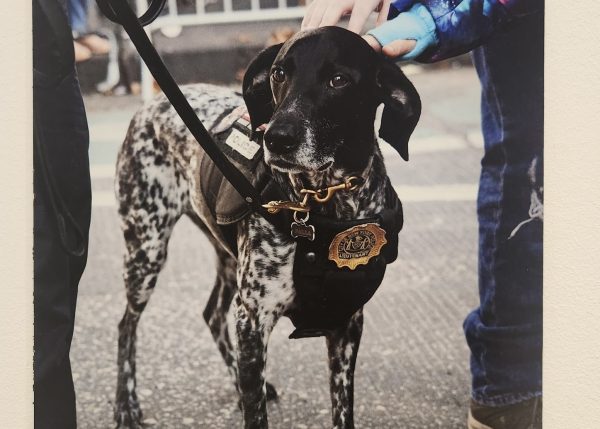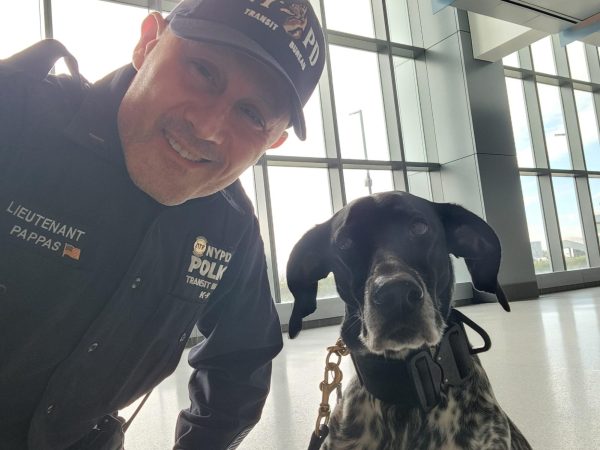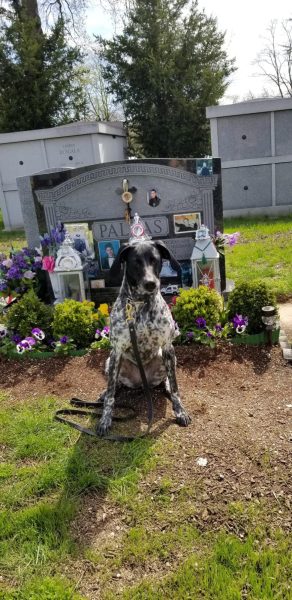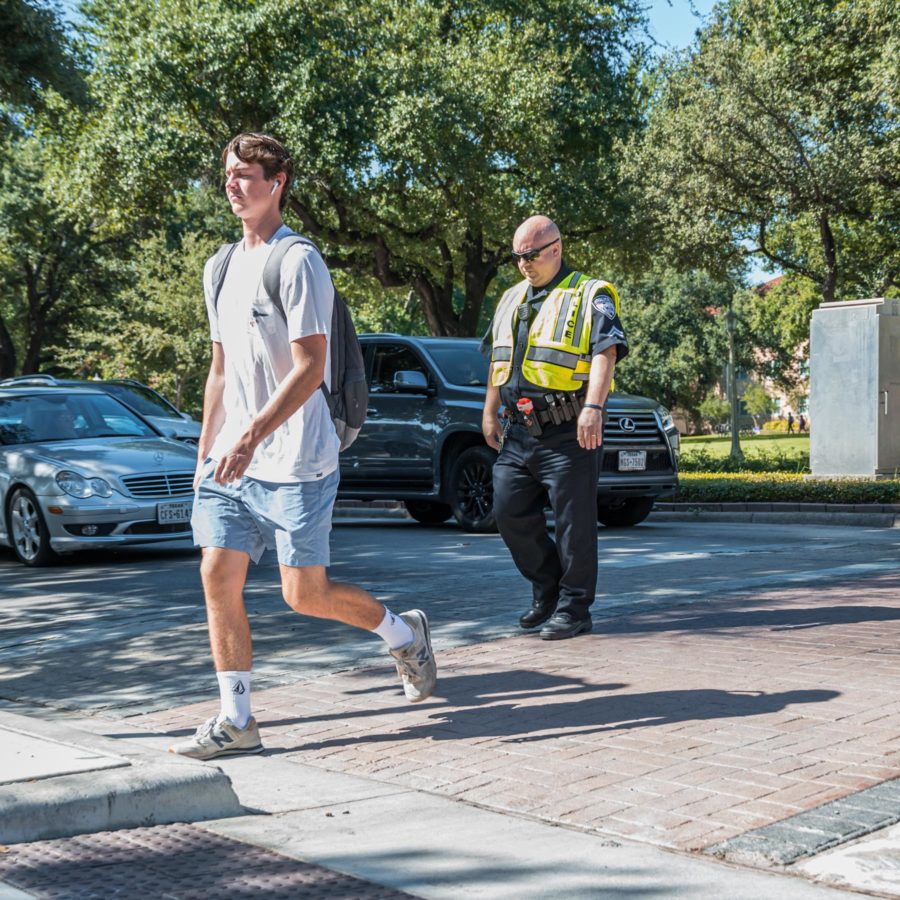Handlers of retired law enforcement dogs would be able to receive grants to help with the animal’s medical expenses under a bill filed in the Texas House.
House Bill 2823, sponsored by Rep. AJ Louderback, R-Victoria, would establish a grant program to cover medical expenses for retired K-9s, including severe injury, illness or disease threatening the life, mobility, or long-term health of the dog. Routine vet visits wouldn’t be covered.
“This bill is designed to help individuals who volunteer to provide a home for law enforcement dogs by creating a grant program to assist with major medical expenses often associated with dogs retiring from law enforcement,” said Louderback, who is a retired sheriff.
Lt. John Pappas, who retired in 2023 after 26 years with the New York Police Department, said he has a special connection with his retired K-9, a German shorthaired pointer. Palla was affectionately named in honor of police officer Paul Pallas, who died from illnesses after inhaling toxic materials released on and after 9/11.

He said that most people don’t know the financial burden placed on those who adopt their retired K-9s.
“Most canine agencies — police and military — don’t take care of police dogs and military dogs in their retirement,” said Pappas. “What they do is they give the dog to the handler and say ‘OK, now the dog is your problem.’”
“If you think about it, this dog loyally served for whatever time period — nine to 12 years or even 13 years in some cases, and now when the dog needs medical care the most, or when it needs attention the most, you dump that on the handler.”
During his time with NYPD, Pappas spent 18 years as the commanding officer of the NYPD Transit Bureau K-9 unit. He established the K-9 unit from scratch.
He’s the spokesperson for the Retired Police Canine Foundation, a non profit organization that assists K-9 handlers with expenses such as veterinary bills and securing housing.
“I had a lieutenant who said ‘my dog gets a $300 shot every month. I’m retired. How am I going to pay for that? I can’t afford that.’”
There’s about 50,000 estimated law enforcement dogs in the United States, which is approximately equivalent to the entire population of the City of Grapevine, according to the nonprofit Project Paws Alive.

(John Pappas)
“If what I share saves one life or one dog, then my whole existence as human is worth it,” said Pappas. “I have seen it throughout the course of my law enforcement career, where God put me in the right place at the right time where I was able to help people.”
“When we retire these dogs, they remain police department property so that we have the right to take them back if they get abused,” said Pappas. “But we expect the handler to pay for the medical care, nutrition and toys? What if all these handlers gave back their retired dogs and they were sitting in our kennels? Wouldn’t we pay for that anyway? The answer is yes.’”
Just like the New York Police Department motto, “Fidelis Ad Morten” which means “Faithful unto death,” Pappas said he is loyal to the dogs in their final days.
“I’m not putting a needle in that animal,” he said. I won’t do that. I love these animals and they served us loyally.”
The grant in the proposed legislation would be limited, dogs “with no reasonable possibility or recovery as determined by a qualified veterinarian” would not be eligible to receive funds.

Pappas said legislation like this needs to be monitored because some medical expenses, like teeth or hip replacements, might not be the best use of funding.
“I think there needs to be someone independent of the vet who can weigh in, as well.”
“The bill provides guardrails to ensure that funding is only for serious medical expenses and allow for veterinarian input,” said Louderback. “I am grateful for the support of the Combined Law Enforcement Agencies of Texas on this bill.”
HB 2823 has been referred to the Homeland Security, Public Safety & Veterans’ Affairs committee.
Louderback said that as soon as the bill is referred, “we can begin working through committee to get it across the finish line.”



